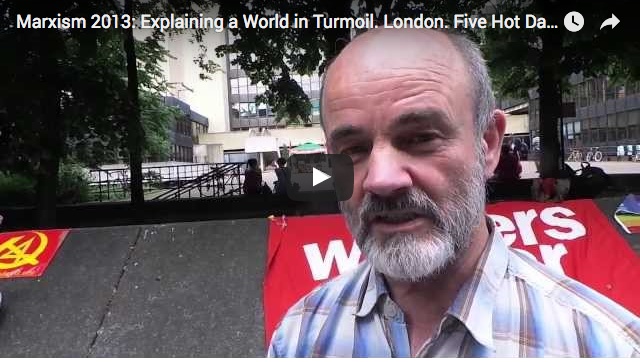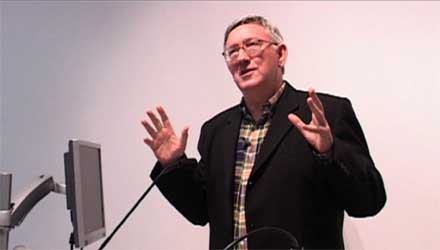David Sherriff says that, while it is right to vote for the old Fabian clause, the task of Marxists must be to win the Labour Party to Marxist socialism
Clause four – rewritten under Tony Blair in 1995 – carries a totemic status for partisans both of the right and left. But while it is correct to support the rule change proposed by Rochford, Southend East, Doncaster Central and Wallasey (which would reinstate the old Fabian 1918 clause four), we need to be far bolder, far more radical about our vision for the future.
Strangely the moving spirit behind the restoration of the old clause four is Socialist Appeal, the British section of the International Marxist Tendency. Its Labour4Clause4 campaign has garnered support from the likes of Ken Loach, the leftwing film director and MPs Karen Lee, Dennis Skinner, Ian Mearns, Chris Williamson, Dan Carden and Ronnie Campbell. Alongside them there are like-minded trade union leaders such as Steve Gillan of the POA, Ian Hodson and Ronnie Draper of the bakers’ union, and Mick Cash and Steve Hedley of RMT.
A bit of history
Our February 1918 conference agreed a new constitution. Clause four (objects) committed the Labour Party to these aims (subsequently amended in 1959):
- To organise and maintain in parliament and in the country a political Labour Party.
- To cooperate with the general council of the Trades Union Congress, or other kindred organisations, in joint political or other action in harmony with the party constitution and standing orders.
- To give effect as far as possible to the principles from time to time approved by the party conference.
- To secure for the workers by hand or by brain the full fruits of their industry and the most equitable distribution thereof that may be possible upon the basis of the common ownership of the means of production, distribution and exchange, and the best obtainable system of popular administration and control of each industry or service.
- Generally to promote the political, social and economic emancipation of the people, and more particularly of those who depend directly upon their own exertions by hand or by brain for the means of life.
- To cooperate with the labour and socialist organisations in the commonwealth overseas with a view to promoting the purposes of the party, and to take common action for the promotion of a higher standard of social and economic life for the working population of the respective countries.
- To cooperate with the labour and socialist organisations in other countries and to support the United Nations and its various agencies and other international organisations for the promotion of peace, the adjustment and settlement of international disputes by conciliation or judicial arbitration, the establishment and defence of human rights, and the improvement of the social and economic standards and conditions of work of the people of the world.
These formulations – crucially the fourth – are too often celebrated as being a defining socialist moment. Yet, when first mooted in November 1917 – amidst the slaughter of inter-imperialist war – Sidney Webb, its principle author, Fabian guru and social climber – had no thought, no wish, no intention of promoting genuine socialism. Parliament, the courts, enlightened civil servants and the liberal intelligentsia provided his road to a reformed British empire. Webb wanted a government of magnanimous experts whose decisions would be no more than ratified in elections: even referendums were ruled out as impeding the will of the educated elite.
Top leaders of the Fabian Society – eg, Sidney and Beatrice Webb, Annie Besant, Sydney Olivier, HG Wells and George Bernard Shaw – considered themselves social engineers of the highest order, intellectual princes, prophets of the future. The role of these ever so clever people was to slowly, patiently, courteously persuade the great and the good of the benefits of ‘socialism’ … hence their organisation’s chosen name (taken from Quintus Fabius, the Roman general who avoided pitched battles with Hannibal’s superior Carthaginian army and instead pursued a strategy of attrition).
No surprise, Marxists have long considered Fabianism to be the crassest expression of opportunism. Fredrick Engels showed particular contempt for this “well-meaning gang of eddicated middle class folk.”[1] True, he credited them with enough wit to realise the “inevitability of the social revolution.” But the Fabians could not possibly entrust this “gigantic task to the raw proletariat alone.” Engels concluded that “[f]ear of revolution is their guiding principle.”[2]
The real class war was denounced by the Fabian ladies and gentlemen. The underlying social contradiction in society, according to them, was not between labour and capital, but the idle rich and the industrious masses … of all classes. Managers and entrepreneurs provide an invaluable service to society. As long as they honestly paid their taxes, fat profits and fat salaries are fully justified. In other words original Fabianism amounted to nothing more than a form of bourgeois socialism.
The Fabian Society was not only elitist. Their leaders were thorough-going eugenicists too. Friedrich Nietzsche provided a warped inspiration. HG Wells urged the death penalty for those suffering from “genetically transferable diseases”. Defective men, women and children were to be dealt with by the means of a “lethal chamber”.[3]
As for the “swarms of black, and brown, and dirty white and yellow people” who did not match his criteria of intelligence and efficiency: “they will have to go”. It is their “portion to die out and disappear”.[4] With that noble end in mind Shaw demanded that “[e]xtermnation must be put on a scientific basis if it is ever to be carried out humanely and apologetically and well as thoroughly”.[5] Meanwhile, the working class was to be lifted out of their ignorance. The more stubborn sections herded into “human sorting houses” to be trained for work. Those who refused would be packed off to semi-penal detention colonies.
The Fabians were committed pro-imperialists too. According to their Fabianism and empire (1900) tract, Britain needed to get its fair share of the spoils from the division of the world:
The partition of the greater part of the globe among such [great] powers is, as a matter of fact that must be faced, approvingly or deploringly, now only a question of time; and whether England [sic] is to be the centre and nucleus of one of those great powers of the future, or to be cast off by its colonies, ousted from its provinces, and reduced to its old island status, will depend on the ability with which the empire is governed as a whole, and the freedom of its governments and its officials from complicity in private financial interests and from the passions of the newspaper correspondents who describe our enemies as ‘beasts.’[6]
Fabian socialism valued politeness and good manners on all occasions, even in the midst of a voracious imperialist war of conquest. Over the years 1899-1902, as good patriots, the Fabians backed Britain’s war against the Boer republics: the “native races” must be “protected despotically by the empire or abandoned to slavery and extermination.”[7]
The British empire was portrayed as a benevolent bringer of democracy to the white dominions and a saviour of the ‘lower breeds’. The best interests of ‘black, brown and yellow’ peoples lay in being ruled over by young men fresh out from Britain’s public schools. Under their guiding hand they would eventually be led to “adulthood.”[8]
Interestingly, as an aside, the Fabians thought that the South African war demonstrated the “superiority of a militia” system over the professional army.[9] An idea that much of the contemporary left refuses even to contemplate.
Naturally, come the 1914-18 great war, the Fabians did their best to serve the imperial cause. Europe had to be saved from the Junkers and Prussian militarism.
However, as the war dragged on and the corpses piled up, any initial popular enthusiasm turned into discontent. The February 1917 revolution in Russia galvanised the hopes of many. Workers, including those in the munitions industry, took strike action. Demands for a negotiated peace grew and amongst sections of the ruling class there were serious worries that Britain stood on the edge of revolution. Reports came of mutinies in army base camps and the killing of military policemen. June 1917 saw a big labour movement conference in Leeds. Famously delegates called for a national network of Workers’ and Soldiers’ Soviets on the model of Russia. Then came the October Revolution which shook the whole capitalist world to its very foundations. Bourgeois politicians rushed to make concessions. Hence, Sidney Webb and the drafting of clause four.
By cynical calculation he had three goals in mind.
Firstly, his clause four socialism could be used to divert the considerable rank-and-file sympathy that existed for the Russian Revolution into safe, peaceful and exclusively constitutional channels. Not that that stopped prime minister David Lloyd George from declaring, in his closing speech of the 1918 general election campaign, that the “Labour Party is being run by the extreme pacifist Bolshevik group”.[10]
Secondly, by adopting clause four socialism, the Labour Party could both distinguish itself from the exhausted, divided and rapidly declining Liberal Party and please the trade union bureaucracy. Since the 1890s the TUC had been drawing up various wish lists of what ought to be nationalised: eg, rails, mines, electricity, liquor and land. Clause four socialism also usefully went along with the grain of Britain’s wartime experience. There was steadily expanding state intervention in the economy. Nationalisation was, as a result, widely identified with efficiency, modernisation and beating the Austro-German foe. It therefore appealed to technocratically minded elements amongst the middle classes.
Thirdly, clause four socialism had to be implicitly anti-Marxist. Webb well knew the history of the Social Democratic Party in Germany. And, of course, Karl Marx savaged various passages in its Gotha programme (1875), not least those which declared that every worker should receive a “fair distribution of their proceeds of labour” and that “the proceeds of labour belong undiminished with equal right to all members of society”.[11]
Contradictory and vacuous, seethed Marx. What is fair? What about replacement means of production? What about the expansion of production? What about those unable to work? More than that, Marx explained these and other such woolly formulations as unneeded concessions to the followers of Ferdinand Lassalle. His Workers’ programme (1862) called for “an equal right to the undiminished proceeds of labour”. Obviously Webb wanted to give clause four a distinct Lassallean coloration not out of admiration for Lassalle, but because he wanted to distance the Labour Party from Marxism.
Red ribbon
Almost needless to say, clause four was mainly for show. A red ribbon tied around what was Labourism’s standing programme of social liberalism. In parliament Labour supported Liberal governments and their palliative measures of social reform. Because of its alliance with the Liberal Party, the party even found itself divided over the abolition of the House of Lords and the fight for female suffrage. While a minority – eg, George Lansbury and Keir Hardie – defended the suffragettes and their militant tactics, the majority craved respectability. As Ramsay MacDonald wrote, “The violent methods … are wrong, and in their nature reactionary and anti-social, quite irrespective of vote or no vote.”[12]
Yet, even if it had been put into effect, clause four socialism remains antithetical to working class self-liberation. Capitalism without capitalists does not count amongst our goals. Railways, mines, land, electricity, etc, would pass into the hands of the British empire state.
Capitalist owners might well be bought out – eased into a comfortable retirement. But, as they vacate the field of production, a new class of state-appointed managers and supervisors enters the fray. In terms of the division of labour, they substitute for the capitalists. The mass of the population, meanwhile, remain exploited wage-slaves. They would be subject to same hierarchal chain of command, the same lack of control, the same mind-numbing routine.
Marxism, by contrast, is based on an altogether different perspective. If it is to win its freedom the working class must overthrow the existing state. But – and this is crucial – in so doing the proletariat “abolishes itself as a proletariat, abolishes all class distinctions and antagonisms, abolishes also the state as state”.[13]
Capitalist relations of production and the whole bureaucratic state apparatus are swept away. Every sphere of social life sees control exercised from below. All positions of command are elected or chosen by lot and are regularly rotated. Hierarchy is flattened. Alienation is overcome. What is produced and how it is produced radically alters too. Need, not exchange, is the ruling principle. And alone such an association of producers creates the benign conditions which allow for the full development of each and every individual.
Doubtless, the old 1918 clause four resulted from progressive political developments. Opposition to the horrors of World War I and the inspiration provided by the October Revolution have already been mentioned. But there is also the formation of the Socialist International, the world-wide celebration of May Day, the considerable influence of the socialist press, the increased size of trade union membership, the formation of the shop stewards movement and the election of a growing body of Labour MPs. Then there was state intervention and regulation of the economy. Capitalism was widely considered abhorrent, outmoded and doomed. Socialism more and more became the common sense of the organised working class.
By contrast, Fabian socialism meant arguing against unconstitutional methods, slowly expanding the provision of social welfare and persuading all classes of the benefits that would come to the nation, if the commanding heights of the economy were put in state hands. In other words, the Fabians consciously sought to ameliorate the mounting contradictions between labour and capital … and thus put off socialism. Rightly, Lenin denounced Fabianism as the “most consummate expression of opportunism.”[14] And, needless to say, the years 1918-20 witnessed colonial uprisings abroad and a massive strike wave at home.
Revealingly, before 1918, attempts to commit the Labour Party to socialism met with mixed success. The 1900 founding conference rejected the “class war” ultimatum tabled by the Social Democratic Federation.[15] Despite that, conference voted to support the “socialisation of the means of production, distribution and exchange”. The next year a socialistic motion moved by Bruce Glasier was defeated. In 1903 another socialistic motion fell, this time without debate. Two years later conference passed a motion with the exact same wording. In 1907 the previous endorsement of socialism was overturned at the prompting of … Bruce Glasier. The same conference agreed to set the goal of “socialising the means of production, distribution and exchange”.[16]
The explanation for the seesawing doubtless lies with electoral calculation. While most in the party leadership considered themselves socialists of a kind, they were mortally afraid of losing out in the polls. What appeared acceptable to likely voters – in other words, the popular press – set their limits. So, instead of fearlessly presenting a bold socialist vision and building support on that basis, Sidney Webb, Arthur Henderson, Ramsay MacDonald and co, chased the vagaries of popularity. With the growth of militancy and radicalism, socialist declarations were considered a sure way of adding to Labour’s ranks in parliament.[17] Forming a government being both a means and an end.
Accept
Nevertheless, the Blairising of clause four in 1995 was hugely symbolic – the ground having been laid by the Eurocommunists and their Marxism Today journal. Socialism was declared dead and buried, the working class a shrinking minority. Only if Labour accepted capitalism and reached out to the middle classes would it have a future. Neil Kinnock, John Smith and finally Tony Blair dragged the party ever further to the right. Out went the commitment to unilateral nuclear disarmament, out went the commitment to comprehensive education, out went the commitment to full employment, out went the commitment to repeal the Tories’ anti-trade union laws, out went the commitment to “the common ownership of the means of production, distribution and exchange”.
By sacrificing the old clause four in the full glare of publicity, Blair and his New Labour clique sought to appease the establishment, the City, the Murdoch empire, the global plutocracy. Capitalism would be absolutely safe in their hands. A New Labour government could be relied upon to not even pay lip service to a British version of state capitalism. Leftwingers such as Tony Benn, Dennis Skinner, Diane Abbott and Ken Livingstone protested, trade union leaders grumbled, but the April 1995 special conference voted by 65% in favour of Blair’s clause four.
Needless to say, his version is stuffed full of managerial guff and classless nonsense. Just what one would expect from the architect of New Labour. After all, one of Blair’s big ideas was to replace ‘socialism’ with ‘social-ism’. Another was communitarianism. But, of course, the media glowed with admiration. Crucially, Rupert Murdoch agreed to unleash his attack dogs. Within a few months John Major was almost universally derided as a total incompetent, heading a sleaze-mired government.
Riding high in the opinion polls Blair inaugurated a series of internal ‘reforms’. Conference was gutted. No longer could it debate issues, vote on policy or embarrass the leadership in front of the media. Instead the whole thing became a rubber-stamping exercise. Then there were the tightly controlled policy forums, focus groups and the staffing of the party machine with eager young careerists (most on temporary contracts). Blair thereby asserted himself over the national executive committee … considerably reducing its effectiveness in the process.
Calls for a return of the old clause four are perfectly understandable. But having done that, we need to persuade members to adopt something far more radical. This is the formulation championed by LPM.
- Labour is the federal party of the working class. We strive to bring all trade unions, cooperatives, socialist societies and leftwing groups and parties under our banner. We believe that unity brings strength.
- Labour is committed to replacing the rule of capital with the rule of the working class. Socialism introduces a democratically planned economy, ends the ecologically ruinous cycle of production for the sake of production and moves towards a stateless, classless, moneyless society that embodies the principle, “From each according to their abilities, to each according to their needs”. Alone such benign conditions create the possibility of every individual fully realising their innate potentialities.
- Towards that end Labour commits itself to achieving a democratic republic. The standing army, the monarchy, the House of Lords and the state sponsorship of the Church of England must go. We support a single-chamber parliament, proportional representation and annual elections.
- Labour seeks to win the active backing of the majority of people and forming a government on this basis.
- We shall work with others, in particular in the European Union, in pursuit of the aim of replacing capitalism with working class rule and socialism.
Reclaiming
Real Marxists, not fake Marxists, have never talked of reclaiming Labour. It has never been ours in the sense of being a “political weapon for the workers’ movement”. No, despite the electoral base and trade union affiliations, the Labour Party has been dominated by career politicians and trade union bureaucrats: a distinct social stratum, which in the last analysis serves not the interests of the working class, but the continuation of capitalist exploitation.
Speaking in the context of the need for the newly formed Communist Party of Great Britain to affiliate to the Labour Party, Lenin said this:
… whether or not a party is really a political party of the workers does not depend solely upon a membership of workers, but also upon the men that lead it, and the content of its actions and its political tactics. Only this latter determines whether we really have before us a political party of the proletariat.
Regarded from this – the only correct – point of view, the Labour Party is a thoroughly bourgeois party, because, although made up of workers, it is led by reactionaries, and the worst kind of reactionaries at that, who act quite in the spirit of the bourgeoisie. It is an organisation of the bourgeoisie, which exists to systematically dupe the workers with the aid of the British Noskes and Scheidemanns [the German social chauvinist murderers of Rosa Luxemburg and Karl Liebknecht – JM].[18]
Despite all the subsequent changes, this assessment remains true. Labour is still a “bourgeois workers’ party”. Of course, once Corbyn was formally announced leader of the Labour Party, on September 12 2015, things became more complex. Labour became a chimera. Instead of a twofold contradiction, we have a threefold contradiction. The left dominates both the top and bottom of the party.
Corbyn is not the equivalent of George Lansbury or Michael Foot – an elementary mistake. They were promoted by the labour and trade union bureaucracy after a severe crisis: namely Ramsay MacDonald’s treachery and James Callaghan’s winter of discontent. Corbyn’s leadership is, in the first instance, the result of an historic accident. The ‘morons’ from the Parliamentary Labour Party lent him their nomination. After that, however, Corbyn owes everything to the mass membership.
That gives us the possibility of attacking the rightwing domination of the middle – not least the councillors and Parliamentary Labour Party – from below and above. No wonder the more astute minds of the bourgeois commentariat can be found expressing profound concern over the prospects of Labour being dominated by leftwing socialists, militant trade unions and Marxists.
Not that Jeremy Corbyn is a Marxist. Politically, he is a run-of-the-mill left reformist, albeit a left reformist with an enduring commitment to workers involved in economic struggles, campaigners for democratic rights and liberation movements in the so-called third world. Inevitably, not least given his Straight Leftist advisors, he is more than prone to compromise with the PLP right and trade union bureaucracy. Indeed his strategy amounts to seeking out allies on the soft right, while attempting to neutralise the hard right. He fears going to war against the right. He therefore seeks to hold back rank and file self-activity against the right. The ‘big idea’ is to concentrate on bread and butter issues, ie, ending austerity.
The result can only but be a series of rotten decisions. We have already seen the tacit backing of Jon Lansman’s bonapartist coup in Momentum, the retreat over Trident renewal and the disgraceful silence that reigns over the ‘anti-Zionism equals anti-Semitism’ witch-hunt.
In other words, it would be fatal for the leftwing majority at a grassroots level to content itself with playing a support role for Corbyn. No, the left needs to fight for its own aims and its own principles
[1]. K Marx and F Engels CW Vol 48, London 2001, p449.
[2]. K Marx and F Engels CW Vol 50, New York 2004, p83.
[3]. D Stone Breeding superman Liverpool 2002, p115.
[4]. HG Wells Anticipations of the reaction of mechanical and scientific progress upon human life and scientific thought London 1902, p317. See – https://www.gutenberg.org/files/19229/19229-h/19229-h.htm.
[5]. GB Shaw quoted in J Carey The intellectuals and the masses London 1992, p63.
[6]. https://archive.org/stream/fabianismempirem00shawuoft/fabianismempirem00shawuoft_djvu.txt.
[7]. https://archive.org/stream/fabianismempirem00shawuoft/fabianismempirem00shawuoft_djvu.txt.
[8]. G Foote The Labour Party’s political thought London 1985, p29-30.
[9]. AM McBriar Fabian socialism and English politics: 1884-1918, Cambridge 1962, p130.
[10]. Quoted in R Miliband Parliamentary socialism London 1973, p64n.
[11]. K Marx and F Engels CW Vol 24, London 1989, p83.
[12]. Socialist Review August 1912 – quoted in R Miliband Parliamentary socialism London 1973, p25n.
[13]. K Marx and F Engels CW Vol 25, London 1987, p267.
[14]. VI Lenin CW Vol 21 Moscow 1977, p261.
[15]. Though it had two guaranteed seats on the LRC’s leading body, the Social Democratic Federation disaffiliated in August 1901.
[16]. See RT McKenzie British political parties London 1963, pp465-71.
[17]. Labour gained 15 seats in the December 1918 general election, making it the fourth largest party in parliament after Bonar Law’s Tories, Lloyd George’s Coalition Liberals and Sinn Féin. It had a total of 57 MPs.
[18]. VI Lenin CW Vol 31, Moscow 1977, pp257-58.
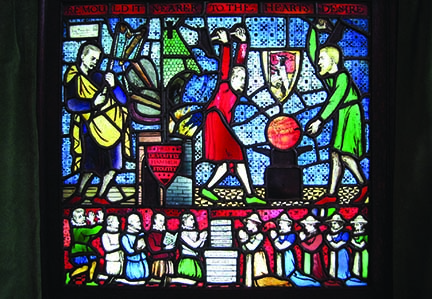
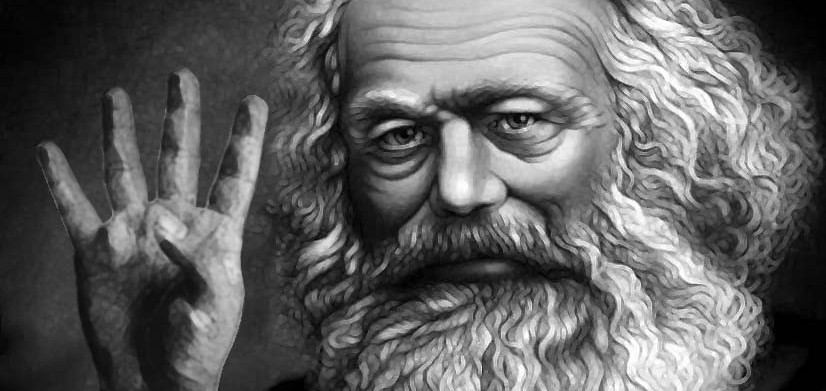
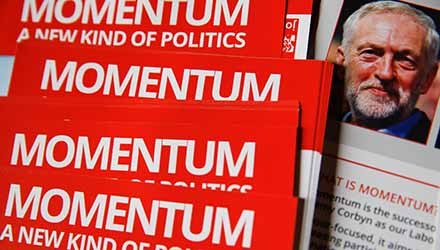
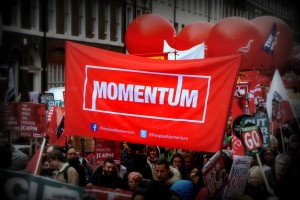 Cottoning on to the fact that it might be politically useful to use Momentum’s “digital democracy platform”, a few days before the deadline of February 16, the AWL submitted its own proposal on the witch-hunt. This was pretty much in line with LAW’s motion – with one important omission: it does not contain any references to the anti-Semitism witch-hunt or criticism of the Labour Party’s support for the International Holocaust Remembrance Alliance (IHRA) definition of anti-Semitism. This IHRA definition, in its list of examples, conflates anti-Semitism with anti-Zionism and support for the rights of the Palestinian people.
Cottoning on to the fact that it might be politically useful to use Momentum’s “digital democracy platform”, a few days before the deadline of February 16, the AWL submitted its own proposal on the witch-hunt. This was pretty much in line with LAW’s motion – with one important omission: it does not contain any references to the anti-Semitism witch-hunt or criticism of the Labour Party’s support for the International Holocaust Remembrance Alliance (IHRA) definition of anti-Semitism. This IHRA definition, in its list of examples, conflates anti-Semitism with anti-Zionism and support for the rights of the Palestinian people.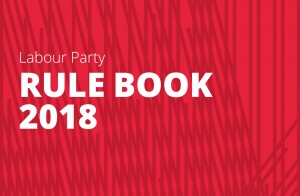 Any Labour Party member who has ever tried to get hold of the full standing orders of their Constituency Labour Party or local campaign forum will know that they are often treated as a closely guarded secret by people in control of the levers of power.
Any Labour Party member who has ever tried to get hold of the full standing orders of their Constituency Labour Party or local campaign forum will know that they are often treated as a closely guarded secret by people in control of the levers of power. LAW proposal
LAW proposal
